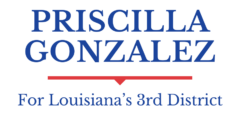The Women’s Health Protection Act of 2021 (H.R. 3755) seeks to protect the right to abortion services and prohibit the passage of restrictive state legislation that limits abortion access. Key elements of the bill include:
- Federal Protection of Abortion Rights:
- Access to Services: It codifies the right to access abortion services and ensures that individuals can obtain an abortion free from medically unnecessary restrictions and limitations imposed by states.
- Prohibition of Restrictive Laws:
- Blocking State Restrictions: Prevent states from enacting laws that impose undue burdens on the provision and access to abortion services, such as mandatory waiting periods, biased counseling, and requirements that do not have a medical basis.
- Healthcare Provider Protections:
- Provider Rights: Protects healthcare providers who offer abortion services from facing legal and professional penalties, ensuring they can practice without fear of retribution.
- Equitable Access:
- Non-Discrimination: Ensures that abortion services are available to all individuals regardless of their geographical location, income level, or other demographic factors.
Impact of Voting Against the Bill
Voting against the Women’s Health Protection Act of 2021, as Clay Higgins did, can be seen as highly detrimental for several reasons:
- Reproductive Rights:
- Erosion of Abortion Access: By opposing the bill, Higgins supports the continuation of restrictive state laws that can severely limit or entirely block access to abortion services, undermining a woman’s right to make decisions about her own body and reproductive health.
- Health and Safety:
- Unsafe Alternatives: Restrictive laws can force women to seek unsafe, illegal abortions, putting their health and lives at significant risk. Voting against the bill fails to protect women from these dangers and maintains barriers to safe, legal abortions.
- Gender Equality:
- Impact on Women’s Autonomy: Voting against the bill perpetuates gender inequality by restricting women’s reproductive choices and autonomy, affecting their ability to participate fully in society and make decisions about their own futures.
- Economic Consequences: Limiting access to abortion can have significant economic impacts on women, including forcing them to carry unwanted pregnancies, which can affect their education, career opportunities, and overall financial stability.
- Healthcare Disparities:
- Disproportionate Impact on Marginalized Groups: Restrictive abortion laws disproportionately affect low-income women, women of color, and those in rural areas, exacerbating existing healthcare disparities and limiting access to essential reproductive healthcare.
- Access to Comprehensive Care: Opposing the bill means endorsing barriers that prevent women from receiving comprehensive reproductive healthcare, which is essential for their overall well-being.
- Public Health:
- Negative Health Outcomes: Limiting abortion access can lead to negative public health outcomes, including higher rates of maternal mortality and morbidity. The bill aims to protect public health by ensuring access to safe abortion services.
In the end, Clay Higgins’ vote against the Women’s Health Protection Act of 2021 represents a rejection of critical protections for women’s reproductive rights and health. This decision has far-reaching negative consequences for women’s health, gender equality, economic stability, and public health, disproportionately hurting the already weak and underprivileged.
